BrewDog and Aberdeenshire Council in land cost wrangle
- Published
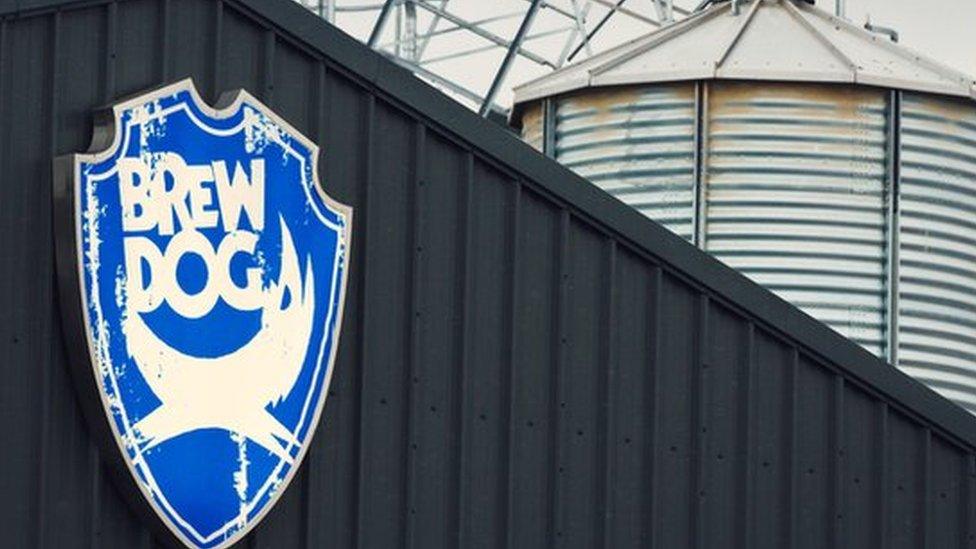
BrewDog has its main base in Ellon
Craft beer company BrewDog and Aberdeenshire Council have become embroiled in a war of words over the cost of buying land for an expansion.
The Ellon-based company said in its blog, external it wants to build a hotel, restaurant and conference centre, creating 80 jobs.
However, BrewDog claims the council wants "60 times fair market value".
Aberdeenshire Council said it had a responsibility to ensure best value for public money.
Friends James Watt and Martin Dickie set up the sometimes controversial firm in 2007 in Fraserburgh.
BrewDog now employs hundreds of staff, and has bars around the world.
'Exciting project'
BrewDog said: "After well over a year of banging our heads against a brick wall with Aberdeenshire Council we feel we had no option but to let the public know what is happening.
"We are trying to grow our business and provide more local jobs and they are making this impossible.
"As a result it will cost Ellon employment, investment and facilities.
"This project would see us invest £5m into the local area and create over 80 new local jobs.
"However, the project cannot go ahead because the council are refusing to sell us the land at fair market value, indeed, they are insisting on charging over 60 times fair market value for the land we need to make this exciting local project happen."
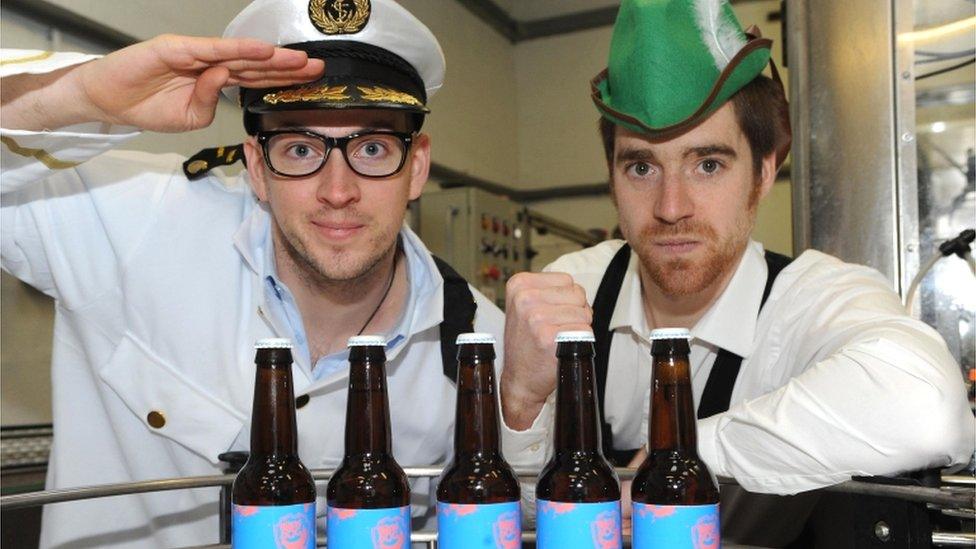
James Watt (left) and Martin Dickie were made MBEs
BrewDog said it had land valued at £5,000 per acre, but was quoted £300,000 per acre.
Aberdeenshire Council chief executive Jim Savege said: "We are a proactive council with a commitment to working with local businesses.
"We also have a responsibility to ensure best value for public money.
"There are ongoing protracted negotiations with BrewDog and this announcement appears to be intended to weaken the council's position.
"We're disappointed that the company has sought to break confidentiality during what we regarded as live and ongoing discussions to achieve an agreement which is fair to both parties and which protects the interests of the local taxpayer, as well as creating opportunities for residents.
"At the heart of this is issue is that the land BrewDog wants has been already earmarked for the expansion of the local cemetery. We cannot sell land vastly below market value - the figure BrewDog has been asked to meet is what the land is worth right now.
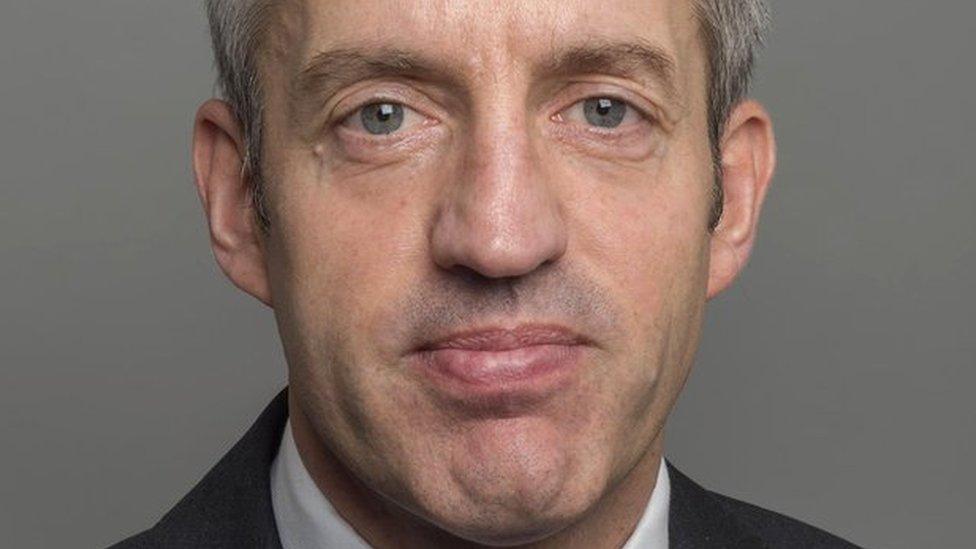
Jim Savege said the council was committed to helping expansion
"Their suggested land value is more representative of agricultural value than a site which has permission for an alternative use.
"Assisting local businesses to expand is a key objective of Aberdeenshire CounciI. If Brewdog remains committed to taking forward this development, then we remain committed - as always - to do everything that reasonably can be done to help the company achieve its ambition."
Strongest beer
BrewDog has attracted controversy over the years.
In 2009, a beer called Speedball was criticised amid claims it promoted the drugs mix that killed actors John Belushi and River Phoenix., external Speedballing is the name given to combining heroin and cocaine.
Later, a low alcohol beer called Nanny State was launched by the company after being branded irresponsible for creating the UK's "strongest beer", external. BrewDog's Tokyo had an alcohol content of 18.2%.
And in 2010, BrewDog said it had reclaimed the title of the world's strongest beer from German rivals - with Sink the Bismarck at 41%., external It had unveiled a 32% beer called Tactical Nuclear Penguin. However, Schorschbrau then released the 40% strength Schorschbock, before BrewDog hit back.
BrewDog's original Punk IPA remains one of the best-selling craft beers in the UK.
The two founders were awarded MBEs in the Queen's Birthday Honours list in June last year.
- Published10 June 2016
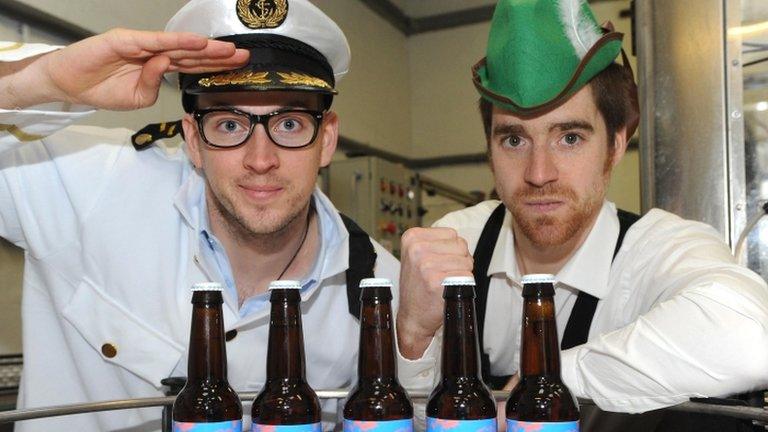
- Published5 April 2016
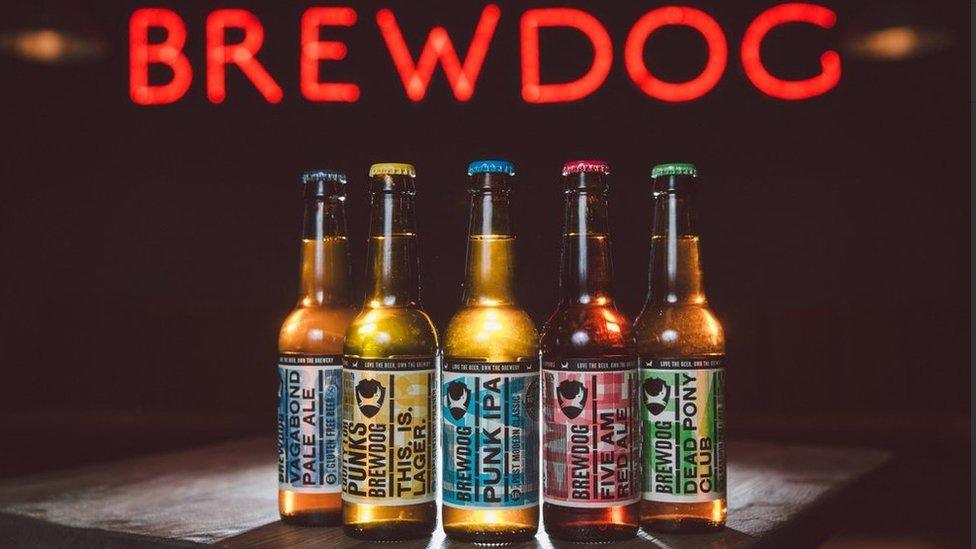
- Published18 February 2016
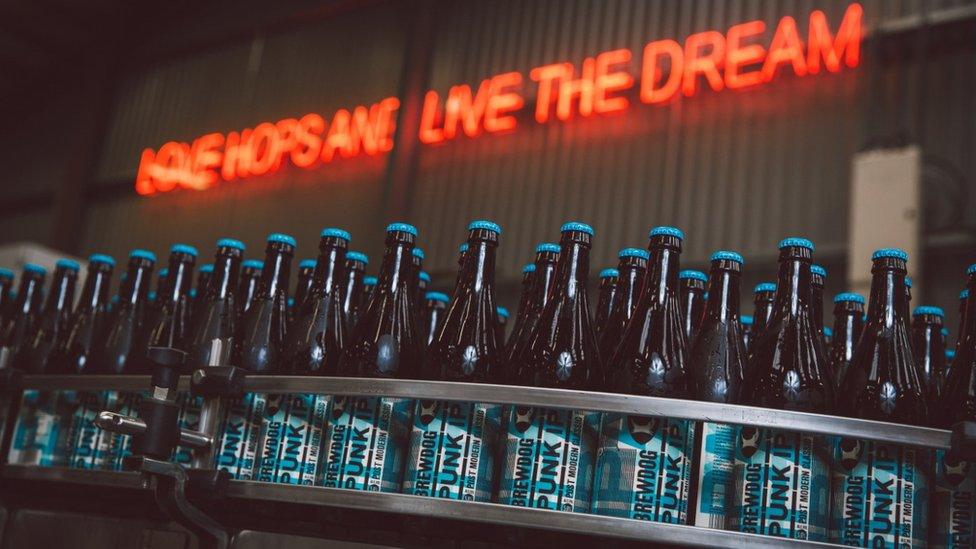
- Published5 January 2015
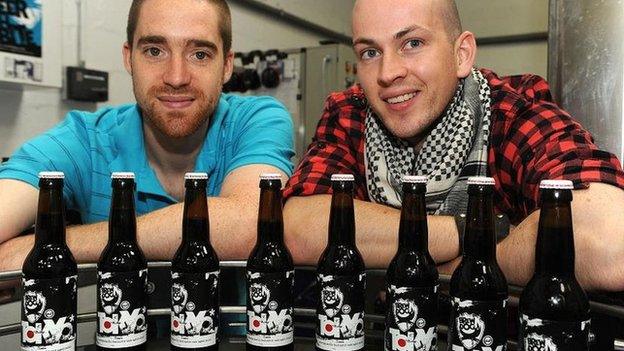
- Published23 July 2010